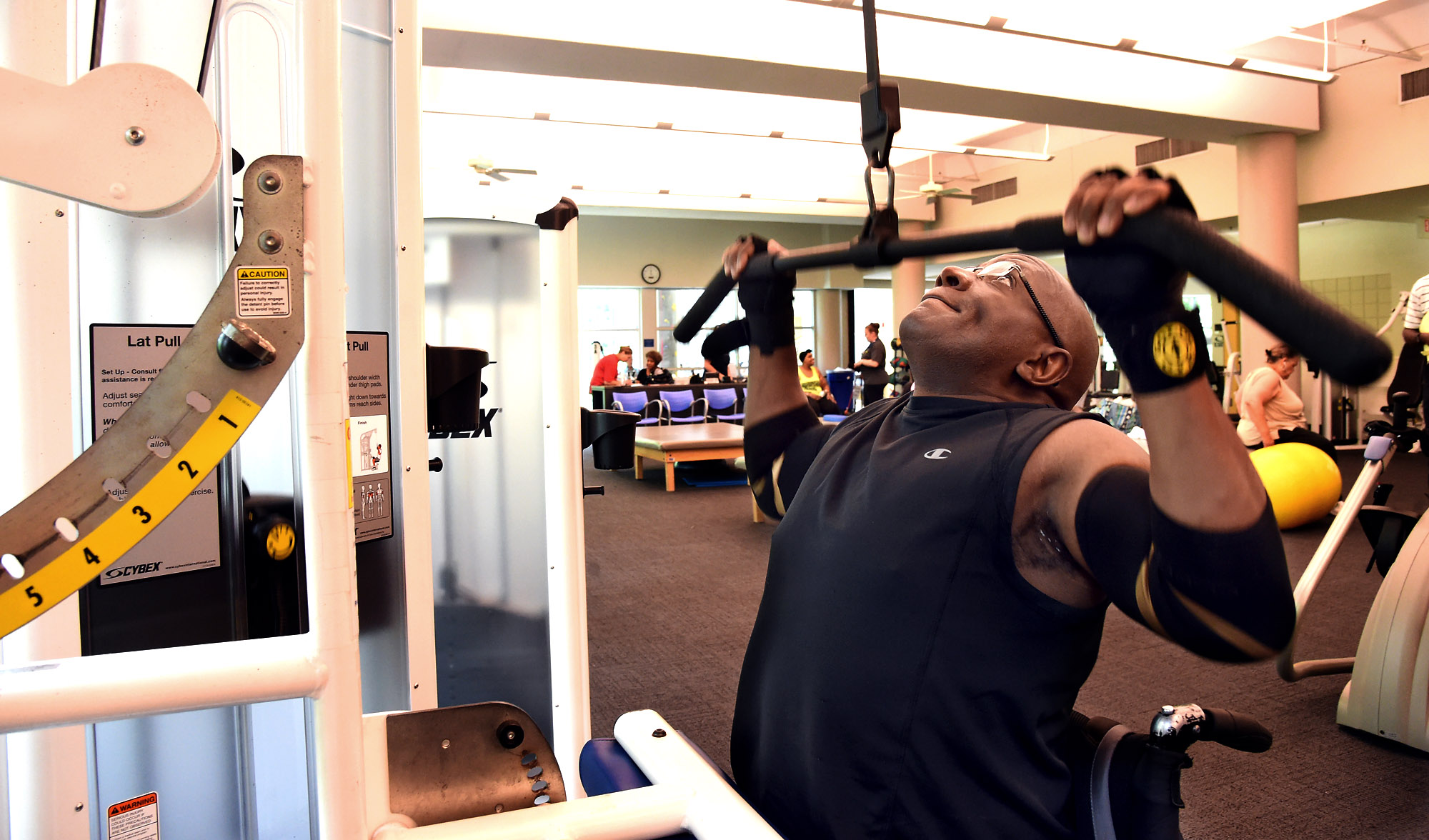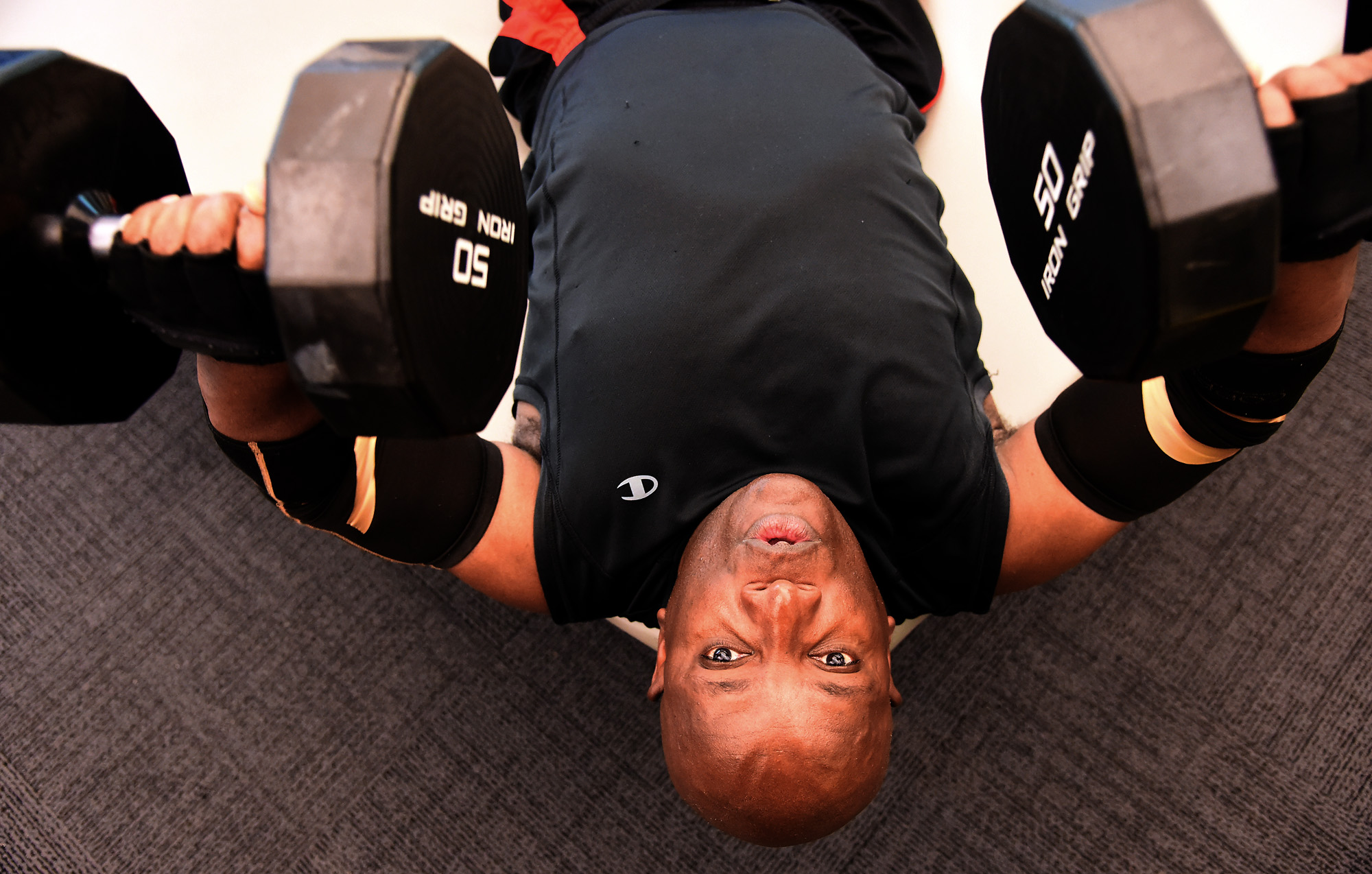
By Solomon Crenshaw Jr.
For the Birmingham Times

W.D. Foster is an Army veteran and a former Birmingham police officer. After being deployed twice—Qatar from 2002 to 2003, and Iraq from 2004 to 2005—and spending much of his life in uniform, he felt he was in excellent shape.
“And,” he recalled, “I was highly competitive.”
Those competitive juices were certainly flowing when Foster was getting ready for another deployment on Nov. 3, 2007. He was taking a physical fitness test at the old Craig Airfield near Selma, doing sit-ups as fast as he could when he came down on a rock that punctured his spine.
“[Doctors] thought I was just having muscle spasms,” he said. “Eight hours later, I was paralyzed from the waist down.”
But this Army veteran’s story doesn’t end in despair.
“When I got this injury, I was spending a lot of time at the house,” the Ross Bridge resident said. “I lost that competitive edge. But when I started coming to Lakeshore and joined Lima Foxtrot, it was exciting to know there are a lot of things I can continue to do.”
Military Service
Serving disabled military veterans is part of the Lakeshore Foundation’s mission to enable people with physical disability and chronic health conditions to lead active, independent lifestyles.
The Lima Foxtrot programs for injured military began as a response to the men and women injured during Operation Enduring Freedom and Operation Iraqi Freedom. Since its inception in 2006, Lima Foxtrot has served more than 2,200 servicemen and women and their families from 46 states and territories.
Foster had been receiving treatment at the University of Alabama at Birmingham’s Spain Rehabilitation Hospital when a wheelchair basketball player told him about the Lakeshore Foundation.
“He said I should come over and try it out,” Foster said.
In 2003, the Lakeshore Foundation was designated a U.S. Olympic and Paralympic Training Site. The facility also is the home of USA Wheelchair Rugby and currently has 13 other athletic teams that compete in a wide range of individual and team sports—for athletes ranging from 6-year-olds who are just starting out to adults who have qualified for the Paralympic Games.

Athletic Potential
As a Lakeshore member, athletes have access to adapted sports equipment, as well as coaching and sports science. In fact, many individuals who become active at the facility may be uncertain of their athletic potential.
“With the slight rule modifications afforded in adapted sport, such as two bounces in wheelchair tennis, athletes are able to realize their full potential both on and off the court,” said Lakeshore Foundation Athletics Director Lisa Hilborn. “The benefits of sports participation are the same whether the athlete happens to sit or stand. … Many of our athletes are able to garner athletic scholarships at schools such as the University of Alabama.”
Foster usually visits the Lakeshore Foundation about four days a week, and sometimes as many as six. The 54-year-old who grew up in Powderly and later lived in Bessemer found a receptive atmosphere.
“It’s very important for people in wheelchairs to be in a facility where they can work out and strengthen the muscles they have,” he said. “We’re blessed to have a facility like Lakeshore. The machines are made for somebody in a wheelchair.”
Network of Patrons
Foster has found more than machines and staff who are trained to assist with his needs. There also is a network of patrons with whom he interacts.
“Lakeshore is more like a family gathering,” he said. “A lot of my friends are multiple sclerosis patients. Some have had hip replacement. Several have been shot and left paralyzed. A lot of them are trying to improve. Some of them are trying to keep what they have.”
That network makes Foster better prepared as he looks to keep up with his 1-year-old grandson, Carter Sargent of Alabaster: “I said I’m gonna need it to keep up with that grandson of mine. I can tell he’s going to be something else.”
Foster isn’t only a patron of Lakeshore; he also works with others at the facility, primarily through the various Lima Foxtrot programs. He gives back, he said, because Lakeshore has done so much for him.
“It’s changed my life,” Foster said. “Whatever I can do to assist them, if I’m available I’m definitely going to do it. I’ve met so many friends here, and I know how much Lakeshore has assisted them. We’re blessed to have Lakeshore here.”



